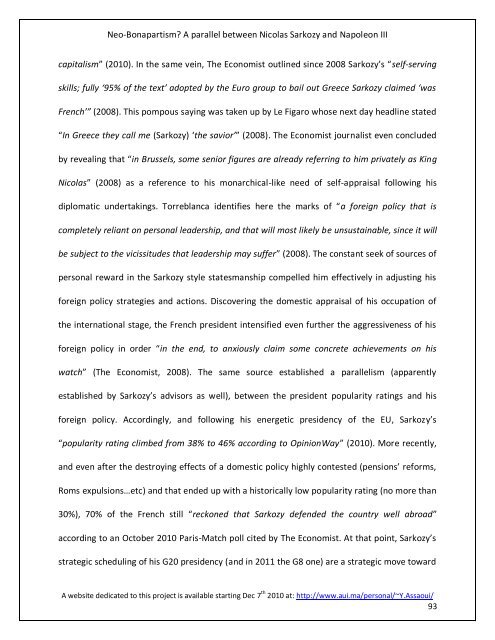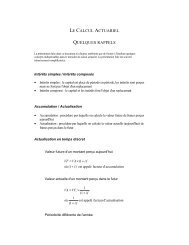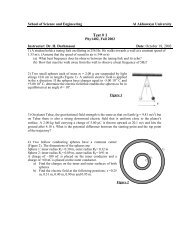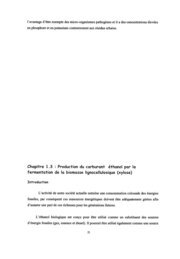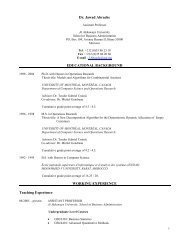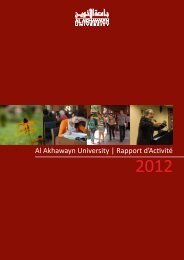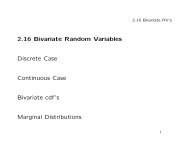Neo-Bonapartism? A parallel between Nicolas Sarkozy and ...
Neo-Bonapartism? A parallel between Nicolas Sarkozy and ...
Neo-Bonapartism? A parallel between Nicolas Sarkozy and ...
You also want an ePaper? Increase the reach of your titles
YUMPU automatically turns print PDFs into web optimized ePapers that Google loves.
<strong>Neo</strong>-<strong>Bonapartism</strong>? A <strong>parallel</strong> <strong>between</strong> <strong>Nicolas</strong> <strong>Sarkozy</strong> <strong>and</strong> Napoleon III<br />
capitalism” (2010). In the same vein, The Economist outlined since 2008 <strong>Sarkozy</strong>’s “self-serving<br />
skills; fully ‘95% of the text’ adopted by the Euro group to bail out Greece <strong>Sarkozy</strong> claimed ‘was<br />
French’” (2008). This pompous saying was taken up by Le Figaro whose next day headline stated<br />
“In Greece they call me (<strong>Sarkozy</strong>) ‘the savior’” (2008). The Economist journalist even concluded<br />
by revealing that “in Brussels, some senior figures are already referring to him privately as King<br />
<strong>Nicolas</strong>” (2008) as a reference to his monarchical-like need of self-appraisal following his<br />
diplomatic undertakings. Torreblanca identifies here the marks of “a foreign policy that is<br />
completely reliant on personal leadership, <strong>and</strong> that will most likely be unsustainable, since it will<br />
be subject to the vicissitudes that leadership may suffer” (2008). The constant seek of sources of<br />
personal reward in the <strong>Sarkozy</strong> style statesmanship compelled him effectively in adjusting his<br />
foreign policy strategies <strong>and</strong> actions. Discovering the domestic appraisal of his occupation of<br />
the international stage, the French president intensified even further the aggressiveness of his<br />
foreign policy in order “in the end, to anxiously claim some concrete achievements on his<br />
watch” (The Economist, 2008). The same source established a <strong>parallel</strong>ism (apparently<br />
established by <strong>Sarkozy</strong>’s advisors as well), <strong>between</strong> the president popularity ratings <strong>and</strong> his<br />
foreign policy. Accordingly, <strong>and</strong> following his energetic presidency of the EU, <strong>Sarkozy</strong>’s<br />
“popularity rating climbed from 38% to 46% according to OpinionWay” (2010). More recently,<br />
<strong>and</strong> even after the destroying effects of a domestic policy highly contested (pensions’ reforms,<br />
Roms expulsions…etc) <strong>and</strong> that ended up with a historically low popularity rating (no more than<br />
30%), 70% of the French still “reckoned that <strong>Sarkozy</strong> defended the country well abroad”<br />
according to an October 2010 Paris-Match poll cited by The Economist. At that point, <strong>Sarkozy</strong>’s<br />
strategic scheduling of his G20 presidency (<strong>and</strong> in 2011 the G8 one) are a strategic move toward<br />
A website dedicated to this project is available starting Dec 7 th 2010 at: http://www.aui.ma/personal/~Y.Assaoui/<br />
93


